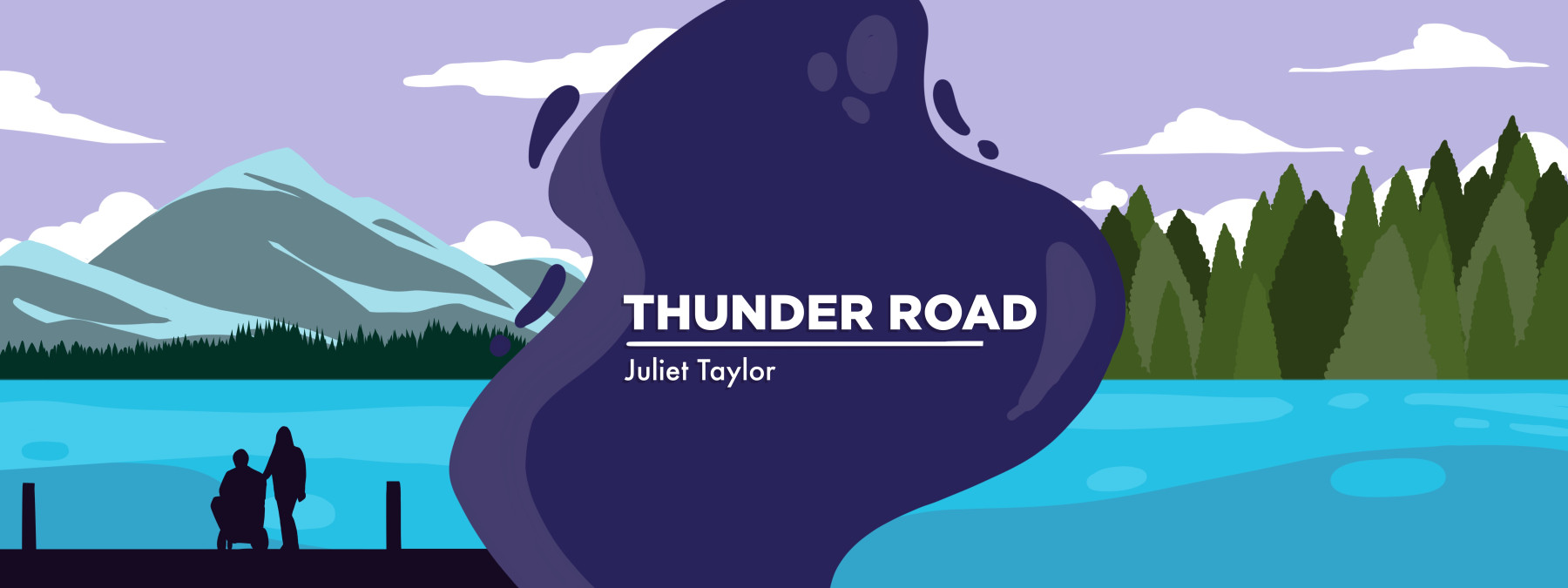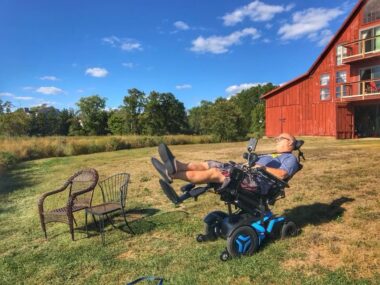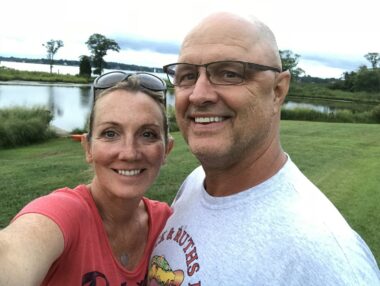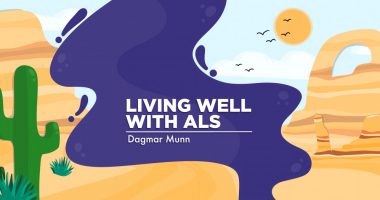How being outside improved our emotional health in life with ALS
Remembering the quiet moments my late husband and I shared outdoors

When my late husband, Jeff, and I were living with his ALS, we were both drawn to spending time outside.
While this wasn’t all that different from our life before ALS, somehow, when faced with his disease, sitting in nature brought a new level of peace that we both seemed to crave. This feeling was never something we overtly discussed — being outside simply became a comforting and easy ritual each day.
In the early days of Jeff’s ALS, I’d grab my morning coffee, Jeff would take his phone for texting, and we’d venture outside together to get our day started. We’d sit side by side in two patio chairs overlooking Maryland’s South River, watching our dog, Rudder, wade in the shallows. Frequently throughout the day — Jeff’s care and weather permitting — we’d return to our spots outside to soak up the sunlight and rest.
ALS changed Jeff’s physical capabilities with relentlessness and unsettling speed, but it also strengthened our joint resolve to live as normally and happily as possible, for as long as possible. Even as his ALS progressed, taking him from using a cane, then a rollator, then a scooter and a power wheelchair, we kept our habit, our tradition of spending time together outdoors.

Jeff enjoys the sunshine and outdoors at his home on the South River in Maryland in the fall of 2019. (Photo by Juliet Taylor)
In retrospect, I understand that these quiet times outside were an important aspect of our emotional health and well-being. And as it turns out, research bears this out.
According to a review published in 2019 in the journal Science Advances, there is “evidence that links nature experience with increased positive affect; happiness and subjective well-being; positive social interactions, cohesion, and engagement; a sense of meaning and purpose in life; improved manageability of life tasks; and decreases in mental distress, such as negative affect.”
Jeff and I moved houses during life with ALS, from a cozy rented farmhouse on a few acres to a more modern and mobility-friendly home just across the Chesapeake Bay. Our regret and sadness at leaving the home in which we’d gotten married — a need dictated, like so many things, by ALS — was mitigated by our happiness at finding another place on the water, this time on a creek that reminded Jeff of his favorite fishing spot with his brothers.
After our move, one of the first mobility modifications we made was creating a wider doorway to the level backyard and installing ramps onto the patio and lawn. By this time, Jeff was using the wheelchair full time, and by leaving the doors open, he could come and go as he wished, spending his days watching the wildlife and listening to music while enjoying the peaceful environment and view.
Jeff died in May 2020, five days after his 60th birthday. We’d spent the prior sunny weeks with the patio doors wide open, letting the breeze in, watching the flowers begin to bloom and birds perching at our feeders. I’d bought him a dogwood tree for his birthday and asked him to choose where it should be planted. Today, the tree is rooted firmly in my backyard between me and my view of the water that brought us so much happiness.
When I reflect on our time living with Jeff’s ALS, I remember our days outside not with wistfulness, but with gratitude that we had something distinct from the disease to focus on, bond us, and bring him joy. Because a love of spending time outside was something Jeff and I delighted in sharing both before and during ALS, it became a bridge between two worlds. It brought a way to stay connected to our past and a way to continue to grow our relationship in the present — a means to spend time together quietly, understanding each other without words.

Jeff and Juliet at home in Maryland. (Photo by Juliet Taylor)
Note: ALS News Today is strictly a news and information website about the disease. It does not provide medical advice, diagnosis, or treatment. This content is not intended to be a substitute for professional medical advice, diagnosis, or treatment. Always seek the advice of your physician or other qualified health provider with any questions you may have regarding a medical condition. Never disregard professional medical advice or delay in seeking it because of something you have read on this website. The opinions expressed in this column are not those of ALS News Today or its parent company, BioNews, and are intended to spark discussion about issues pertaining to ALS.








Comments